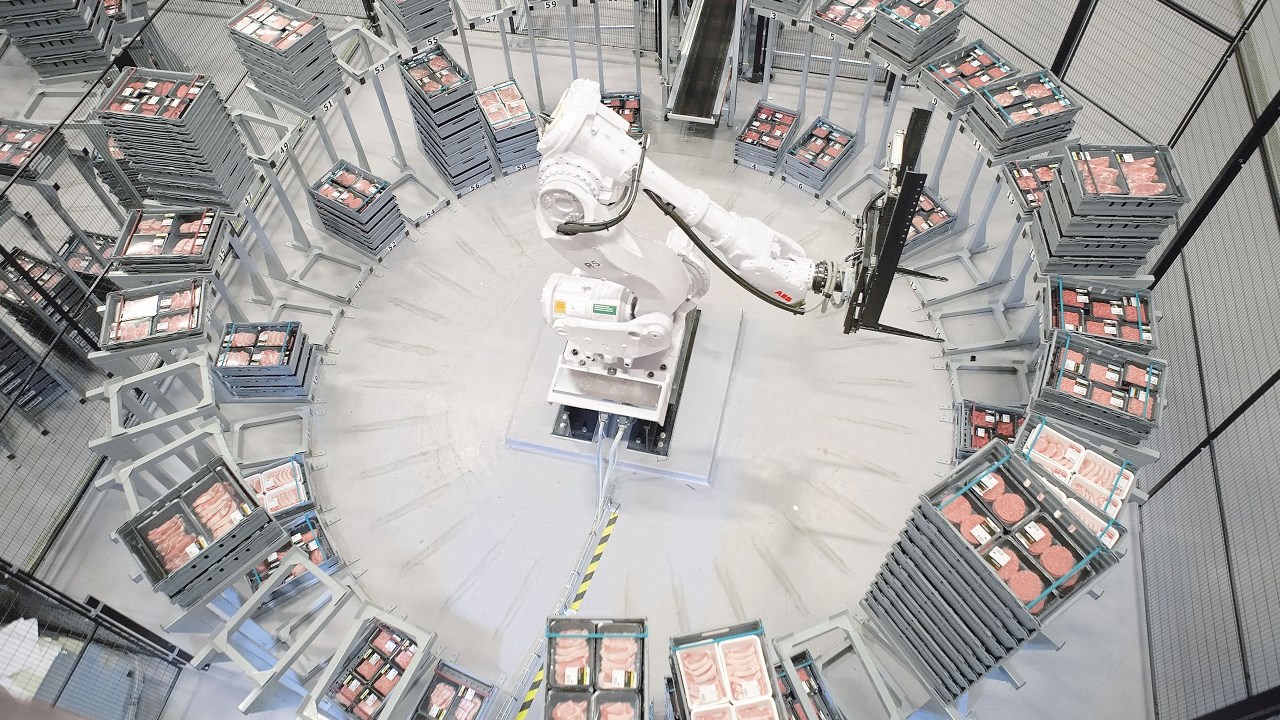The possibilities are vast and the ability to inspire should not be undersold – this is a time to dream big. But in order to garner support for your AI ambitions, it is also necessary to demonstrate proof of concept.
Here are some real-life examples of how AI can change the game for F&B manufacturers around the globe.

Safety/quality issues
AI systems deliver safer, more accurate production lines results with greater speed and more consistency than human workers. And on the factory floor, AI-based detection can be used to keep employees and equipment safer, identifying potential risks, such as a worker who has forgotten to wear the appropriate safety gear.
Waste reduction
New approaches to measurement and monitoring can have a huge impact on waste reduction. Rather than waiting until the end of a batch or cycle to check the quality of output, AI that uses real-time monitoring can identify anomalies as soon as they occur.

Hygiene
AI also displays great potential for the optimization of the hygiene and cleaning tasks that are so critical for Food and Beverage facilities. A UK-based partnership between Martech of Whitwell and the University of Nottingham is working on developing self-optimizing Clean In Place (CIP) systems, where an AI-powered multi-sensor system will detect food residue and microbial debris on equipment in order to determine the optimal length of cleaning time. It is estimated that the system could save the UK food manufacturing sector up to £100 million per year.
Environmental sustainability
AI can play a vital role in optimizing power and water consumption, which creates immediate benefits for operating costs and margins.
For instance, fresh products like fruit and vegetables can vary dramatically in size, shape, color and texture, adding a layer of complexity to the production line. AI solutions can easily recognize variances, removing contaminants without wasting whole batches and continually adjusting water and energy usage according to requirements. The entire process, including robotics, can be fully automated, running 24-7 and active across production.
Facility management can also be made easier and more sustainable by cutting electricity consumption. Energy Forecasting and Intelligent Alerts, ABB’s suite of AI-powered energy management tools, were developed as part of its Open Innovation program to help operatives reduce peak demand charges. The Intelligent Alerts app also utilizes predictive machine learning algorithms to help users identify issues before they become problems, reducing costly downtime.

Production Optimization
AI has enormous potential to optimize production and uncover manufacturing facilities’ best operating points to meet and even exceed KPIs.
Examples of its application could include faster production changeovers ––reducing the amount of time needed to switch from one product to another –– and identifying production bottlenecks before they become a problem. Today, an operator is still required to ‘tune’ the recipe or process but in the future, models will be trained to calibrate production automatically, enhancing output quality and speed.

Packaging
AI-driven robotics are proving key to meeting the packing and picking demands accelerated by consumers’ increasing use of e-commerce. The complex and labor-intensive nature of the process offers unique potential for intelligent automation.
ABB has partnered with Silicon Valley start-up Covariant to supply sophisticated picking robots that work side-by-side with human operatives. Covariant’s software combines 3D cameras and reinforcement learning, so robots can learn new tasks independently. This allows for much more sophisticated trial and error responses, which ultimately result in incredible accuracy that can work at scale.
There has never been a more timely moment to explore how AI can optimize your facility’s productivity, efficiency and output. In a survey by BCG, 90% of top F&B executives shared their belief in AI’s enormous potential to improve their business. The opportunities are already here but they require a strategic mindset.
It’s time to face a digital future with confidence. For case studies and more actionable insights into what AI can do for your business, download our whitepaper.

